Hi Sweet Friends,
Well, it’s late January, so I’m guessing that more than a few of you have slipped on your New Year’s resolutions (me too!). First of all—no biggie. If the goals you made while ringing in 2014 are still important to you, keep moving toward them one step at a time. Turtle power! But if you haven’t pinpointed what you want to do to improve your health, you’re not alone. Many of my readers are overwhelmed.
I get this question almost daily, “There are so many healthy habits to choose from—which one should I tackle first?”
Translation: What will make the biggest difference in my health TODAY.
Of course, green juices and smoothies are my numero uno recommendation, but second is always… dumping dairy. That’s right, go dairy-free.
You’re gonna learn a lot about dairy in a minute, but here are a few of the main reasons I removed it from my diet. Dairy is high in saturated fat (which can lead to stroke and heart attacks), it’s highly inflammatory (the root cause of many chronic diseases), and the growth hormones in dairy (ex. IGF1) can stimulate malignant cell growth and proliferation (because I have cancer, that’s a big NO thanks!). I know from personal experience, and from thousands of emails, Facebook comments, and tweets, that saying adieu to dairy can totally transform your health. So even if you’re not keen on ditching your milkshakes and brie today, I invite you to learn a little more about this bovine beverage. Even lessening the amount of dairy you consume can make a difference in how you feel.
How Dairy Impact Your Health
(excerpted & updated from Crazy Sexy Diet and Crazy Sexy Kitchen)
A cow drinks cow’s milk when it’s a baby. A bunny drinks bunny’s milk when it’s a baby. Beyond a certain age, even they know that it’s freaky to suckle. And do you ever see them switch and swap? The only time milk is essential for good health is when we are babies, being breastfed by human mothers. Human breast milk is nature’s perfect formula for human babies. It’s rich in good fats like DHA for brain development, but it’s relatively low in protein. Cow’s milk contains more than three times as much protein as breast milk. That’s because baby cows need a lot more protein. They grow to between 1,500 and 2,000 pounds. Is that your desired weight? If so, hello reality TV!
While the protein in human milk is designed for human bodies, much of the protein in cow’s milk is difficult for humans to digest.
In addition, the over-consumption of this protein can lead to serious health conditions. Dr. T. Colin Campbell, professor emeritus of nutritional biochemistry at Cornell University, found that the protein that consistently creates and promotes cancer is casein, which makes up about 87 percent of the protein in cow’s milk. According to Dr. Campbell, a diet that contains more than 10 percent protein (that’s about 50 grams of protein if you’re consuming 2,000 calories per day) can lead to the little “c.” Guess what? Americans eat way more than that (an average of 17 percent total protein, of which 12 to 13 percent is animal-based!).
Forget scary, life-threatening diseases, let’s talk about simpler pickles.
Ever pass a kidney stone? If you have, then you know that it’s incredibly painful—sorta feels like shooting an elephant through your pee hole! How about Crohn’s disease, a veritable inflammation blow-out sale? Both of these not-so-happy afflictions have been linked to dairy consumption. Allergies, eczema, asthma, arthritis, inflammation, and zits can all be linked to dairy. What about skim milk or nonfat milk? They’re just as bad. For me, cheese was the hardest thing to give up, but once I did, my weird rashes and forehead bumps disappeared. I also started to breathe easier—a pretty important change for a gal with cancer in her lungs. Perhaps this is too much information, but my poop changed, too. It came out regularly!
How about tummy pain, gas and bloating? Well, there may be a good reason for your belly’s aching. According to the American Academy of Family Physicians, around 75 percent of the world’s adults can’t digest milk (they’re lactose-intolerant). Among some populations, such as Native Americans and Asians, the figure is over 90 percent. Beyond childhood, most people stop producing the enzyme lactase, which is needed to digest lactose (the sugar in milk). Yeah, your body thinks you should wean, too. I’ve never met someone who didn’t feel better once they removed dairy from their diet. Sorry folks, but all good things come to an end.
Beyond Pasteurized Cow’s Milk
After reading your comments on this blog, I realized that a lot of my readers are curious (and passionate) about raw cow’s milk, goat’s milk and sheep’s milk. I checked in with my resident RD, Jennifer Reilly, to get the scoop on the other animal-based milk options on the block. Here’s what she had to say:
Raw Cow’s Milk: Many foodies and natural health advocates have been singing the praises of raw cow’s milk compared to pasteurized cow’s milk for some time. They claim that raw milk has more digestive enzymes (including lactase which breaks down the milk sugar lactose), more probiotics, more immune-boosters, and a richer supply of vitamins and minerals, which are otherwise killed during the heating process of pasteurization. Very little scientific research has been done to confirm or dispute these claims, although there are plenty of raw milk advocates who are positive that their allergies diminished, asthma improved, and lactose intolerance disappeared once they switched to raw cow’s milk.
Raw cow’s milk may be a step up from pasteurized cow’s milk as the raw version is often from cows only fed organic grass and not treated with antibiotics or artificial hormones. But, keep in mind that without pasteurization, raw cow’s milk is still rich in inflammatory and allergy-potential casein (milk protein), contains potentially cancer-causing Insulin-like Growth Factor 1 (IGF-1) (and its consumption also causes an additional production of IGF-1 in the human body), natural hormones, and without pasteurization, raw cow’s milk contains human pathogens which are of particular concern to food scientists, including Salmonella, E. Coli, and Listeria (see abstract here). These pathogens are especially risky for folks with compromised immune systems.
Goat & Sheep Milk: People are also turning toward milk from goats and sheep as alternatives to cow’s milk, and here’s why. Both goat and sheep milks have less lactose, so digestion is easier for humans compared to cow’s milk. Goat milk is closest in structure to human milk and is slightly alkaline, whereas cow’s milk is slightly acidic. Both sheep and goat milk contain a greater percentage of medium-chain fatty acids compared to cow’s milk which makes them naturally homogenized and easier to digest aside from the lower lactose content. To me, goat and sheep milk seem like a better option. But remember, you’re still getting casein and growth factors which may have a negative effect on human health. So if you’re consuming any kind of dairy, choose the best sources and do so in moderation.
Thanks, Jen!
Now, onto one of the biggest questions about living dairy-free…
But, where will I get calcium?
This is probably the most frequently asked question when talking about going dairy-free. Good news! Nature’s best calcium sources are dark leafy greens such as kale, collards, mustard greens, and turnip greens. The calcium in these foods is absorbed at double the rate of dairy calcium. About 30 percent of dairy calcium is absorbed whereas about 60 percent of calcium from dark leafy greens is absorbed. Other rich plant sources of calcium include beans, almonds, figs, and fortified nondairy milks such as unsweetened almond milk, oat milk, hemp milk, and rice milk.
When it comes to bone health, calcium isn’t the only factor.
Overall diet and activity levels determine bone health and even calcium needs. Countries with the highest calcium intake have the most osteoporosis, so there’s obviously more to the bone-health story than calcium alone.
Here’s another helpful factoid, vitamin D—which is necessary for calcium absorption and is best obtained from 20 minutes of sunshine 3 times a week during summer months and fortified, nondairy foods or supplements during winter months—is now being considered the most important nutrient in bone health. Bottom line: A diet rich in plant foods easily meets calcium needs. Check out this handy infographic for even more info on your calcium needs and plant-based sources.
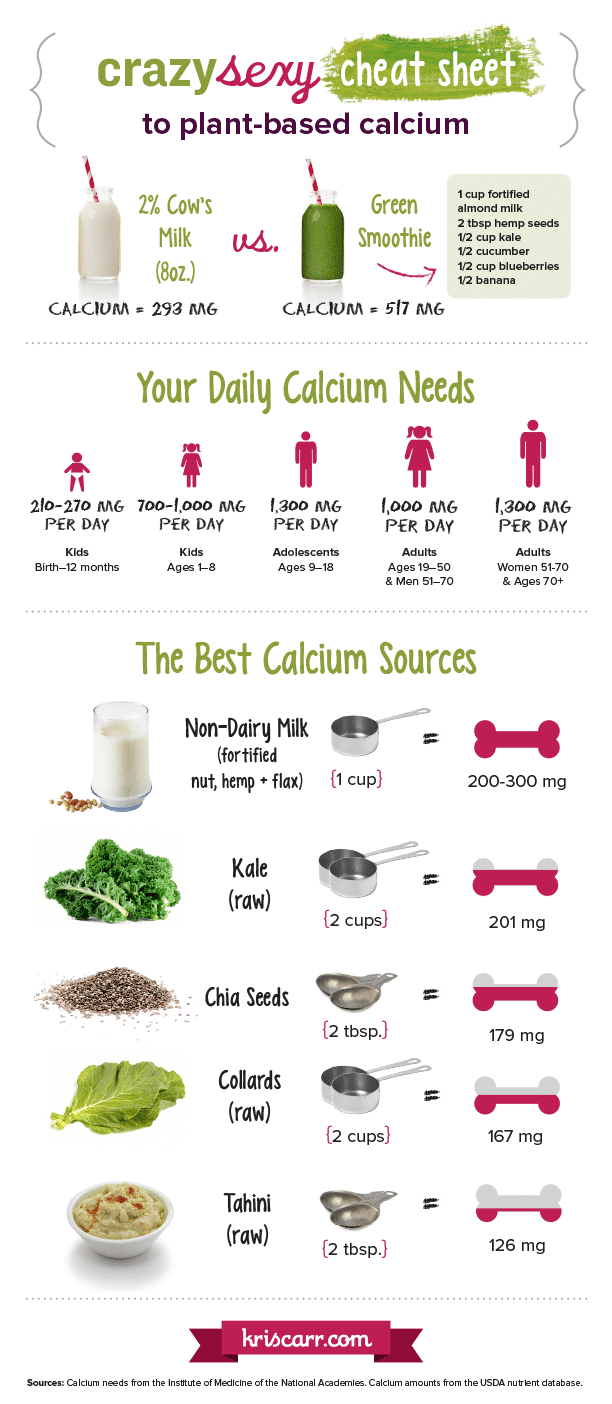
Dairy Free Alternatives
Going dairy-free doesn’t mean deprivation, it just means trying new things! Nowadays there are so many options that are just as good as the “real” deal. To learn about my favorite store-bought dairy alternatives, take a peek at my pantry and fridge. But when you get down to it, the real magic happens in the kitchen. Did you know that you can make your own moo-less cheeses, creams, milks and spreads at home? Plant-based, whole food recipes are easy and way healthier than the store bought stuff. And since I want you to taste this dairy-free goodness pronto, I’ve included some of my go-to Crazy Sexy Kitchen recipes for your enjoyment!
Dairy Free Diet Recipes
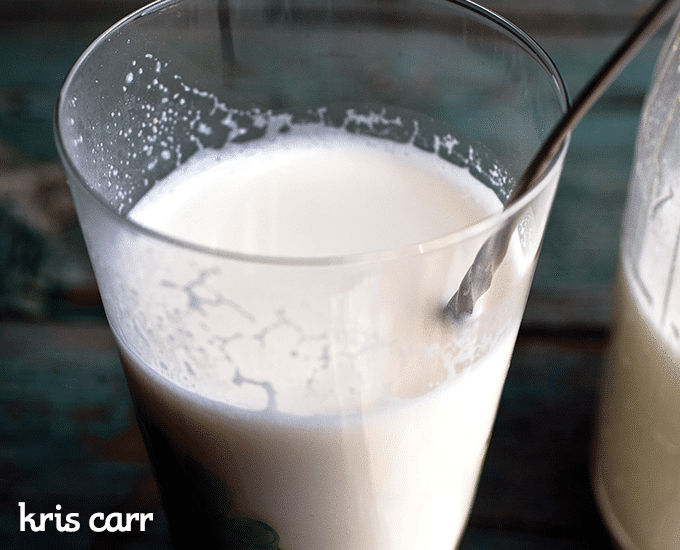
Basic Nut/Seed Milk (Crazy Sexy Kitchen)
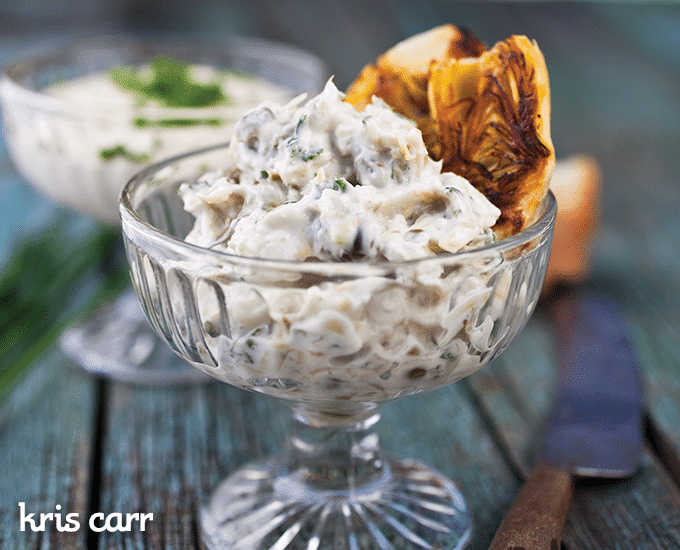
Artichoke Aioli (Crazy Sexy Kitchen)
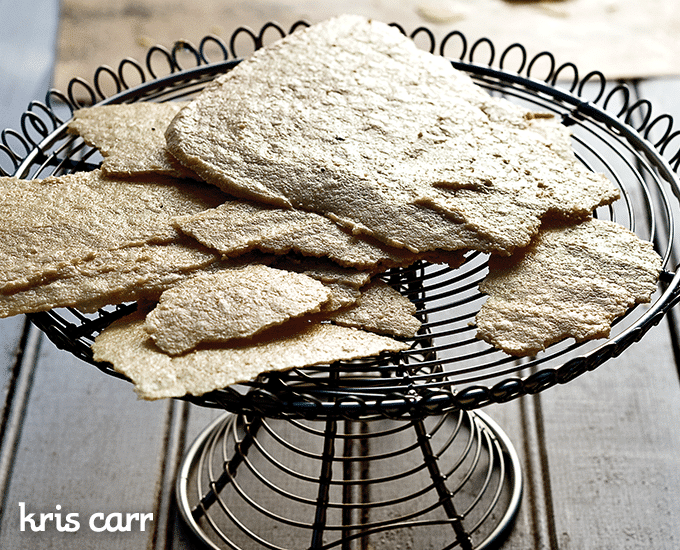
Truffled Parmesan (Crazy Sexy Kitchen)
Oooh, one last tip… Remember that most store bought alternatives are processed, so eat them in moderation or just use them as transition foods till your palate shifts. Also, when choosing these products, look for carrageenan-free, check out this comprehensive list.)
I hope this helps and as always, you don’t have to change everything at once. Slow and steady wins the race. But if you’re dealing with any inflammatory issues, this one recommendation may be the best place to start!
Now it’s your turn, have you seen a change in your overall health after removing dairy from your diet? What are your favorite dairy alternatives?
Peace & nut cheese,
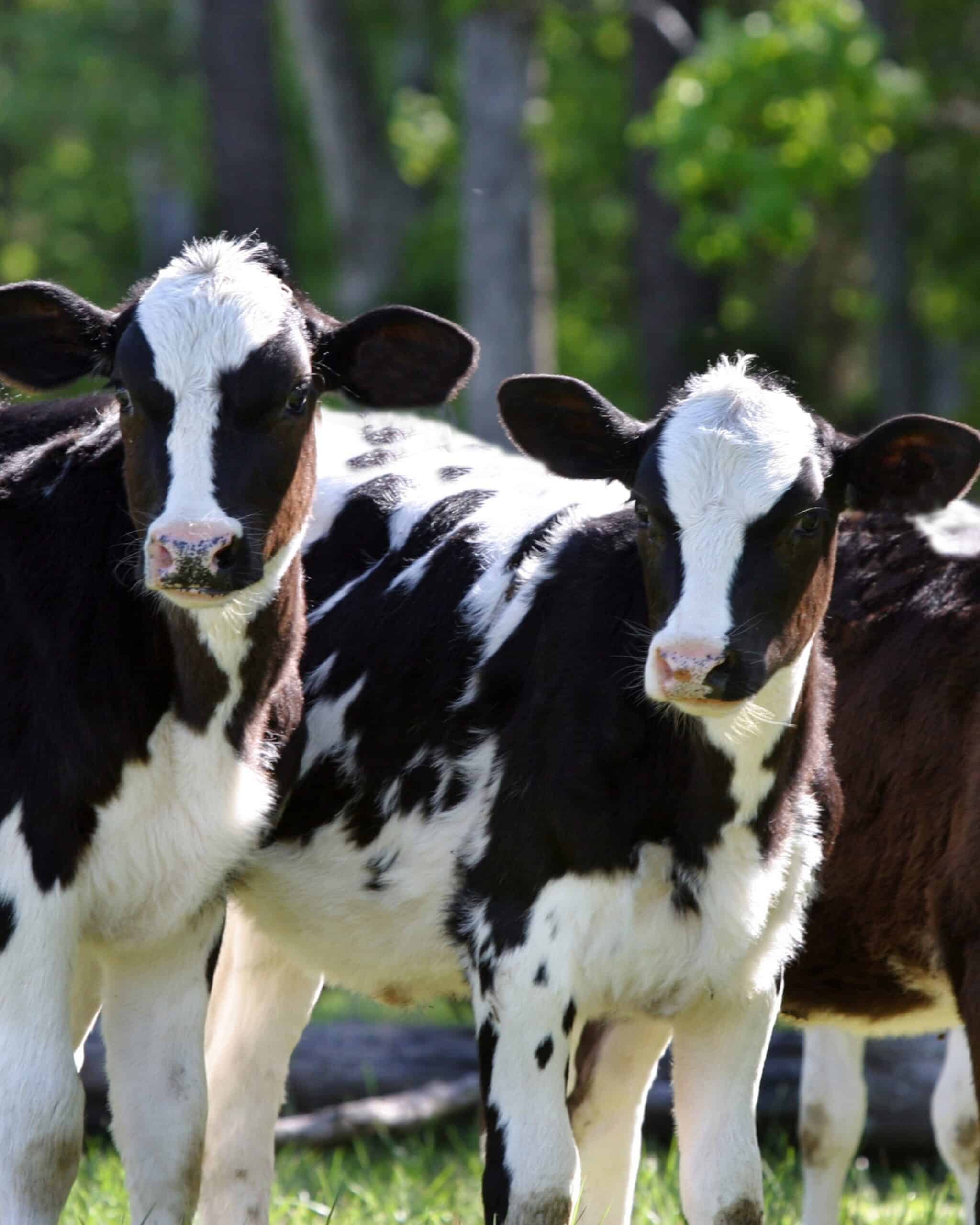


I drink organic skim milk. If the store is out of that, I will drink organic 1% or 2%. I have always CRAVED milk. I don’t know why. Basically, I drink organic milk and Mountain Valley Spring water that comes in glass bottles and not much else. I never have trouble with bowel movements. I have never cared for cheese. I do eat organic yogurt. Dairy has never given me gas or bloating or any problems. After menopause, I became sensitive to flax oil and flax seeds – can’t eat them. Walnuts make me very ill. I don’t know what I would do without organic milk. I love it!
Why don’t you list coconut milk a an alternative? I thought the saturated fat in coconuts was beneficial (as opposed to animal saturated fat.) Now that I think of it I don’t think I ever see you love on a coconut. Any reason why?
Coconuts are great Cindy. Love them.
Hey Kris, Just a FYI re: dairy. Canadian dairy products don’t have growth hormones in them. Yay. 🙂
Thanks for this article! I’ve really been wanting to give up dairy (I know it’s why I’m short of breath and sneezing all the time!) Great timing, I have officially decided to give it up today!! Besides, I already love almond milk and I do feel bad for those momma cows. One thing I’d like to point out though, a co-worker of mine is convinced her sudden high intake of almond milk created a nut allergy in her. Maybe she’s wrong, but it’s something to consider.
Great discovery, I thought you were only selling some staff. Now, I will be your fan. THNKS
dairy baaaad (so is sheeps milk). Since really cutting back, I still need something for my tea. There is LESS to NO negative experiences in my belly area. All is soooo good! Feel like teenager again, and looking good, lost some weight.
My favorite milk now is almond milk. How to make:
1 cup almonds, soaked 8-10 hrs
8 pitted medjool dates, soaked 1-2 hrs
3 cups filtered water
1 tsp vanilla powder
strain with nut bag, chill, enjoy
Kris, thank you for this great blog! Such an important message. I’ve been dairy-free for 18 months. It started as a month-long experiment, and I felt so much better in days, that I have never looked back. Now I aint an udder sucker I have way smoother digestion, clearer skin, healthier lungs, and less excess tummy flabber. I can also look cows in the eye without shame.
HI, i WANTED TO INFORM U O F 2 THINGS, tHERE IS A NEW VEgetarian cook book out that is written by a french women entitled, ” the french market cook book , her name is Clotilde Dusoulier. These are vegetarian recipes from her parisian kitchen. If u r not familar w/ this book , I believe u might find some of the recipes rather interesting. I especially liked the spinach pancakes. Anyway u can check it out. The other is a web site & product called atheltic greens, If u r not familar w/ this product , u can check it out , a rather interesting web site, explains all. Thanks, Milt
THANK YOU THANK YOU THANK YOU!!!!
No matter how much I share about all the sad and bad things that happen to our bodies when we subject them to dairy, no one really seems to listen to me or believe me. It’s as if I am on mute. There must be something seriously addictive about dairy that just repels the idea of cutting it out of ones diets.
Anyway, I am sharing this all over the place!
Peace and free the cows!!!
XOXO
Awesome Kris; thanks for this great article. I’m allergic to dairy and love using almond milk! I also found a great vegan cheese that I enjoy using called Go Veggie! Vegan Cheese that’s amazing for anyone looking for that ‘melt’ and flavor just like real cheese!
Love the inclusion of the greens here- great way to get calcium. Thanks again!! Happy New Year!
Hey Kris, thanks for this! I love the green smoothie recipe! Up until now, I’ve cut out all dairy except my stinkin’ favorite Greek yogurt! Yet, after reading this, I”m inspired to finally make a change. It’s the last animal product in my diet and so why not just get rid of it altogether? Thanks for the inspiration and the recipe!!:) I can’t wait to see your new book when it comes out:)
Peace, love and plants<3
Og, Kris, this was sooo timely. Just this morning, ny inner voice was saying, “gotta give up milk”. I do have aches abd pains and has been feeling kinda miserable about it. I will do it now. Thank you!
What about homemade kefir or yogurt? They are well tolerated.
Woohoo thanks for posting this! Just went vegan a week ago. I’ve been vegetarian for 7 years and have wanted to go vegan for the past few… and Crazy Sexy Diet gave me the final push I needed. You are amazing. And I feel great 🙂
Hi Kris,
I totally agree. Everytime I am not eating dairy for a longer period of time I feel amazing. It even feels as if I “shrink” in size ( – even without dieting). 😉
Instead of dairy I enjoy almond milk in my tea or cereals. Finally, I found a brand that I love and that does not taste weird.
I dont like soy milk – I find it has a very unpleasant taste. At least the ones I tried.
I have stopped eating dairy and have noticed my nasal congestion is gone! I thought it was allergies living in FL, but since I cut it out I’m not congested and blowing my nose constantly! Amazing! I love cheese, and still cheat every once in awhile, but then pay for it the next day, so I’m learning…
Thanks for the great article!
Thank you dear lady (and fellow cancer survivor) for this article and link to that comprehensive list of carrageenan-free foods! I learned about the dangers of this so-called natural food additive from Dr. Weil’s website, and since then have given up my almond milk. I tried making my own, but after straining it several times and still having almond grounds in it (which I darn near choked on), I wanted my store-bought almond milk back! Now, with the handy guide of safe products from Cornucopia’s website, I’m off to the grocery store. Yay!
What’s your take on Vitamin A Palmitate? I heard that stuff is bad, too, and it’s in everything!
Oh my gosh, I’m replying to my own comment! I just found a great website with a very simple pattern to make a nut milk bag, so I wanted to share it: http://www.eatingvibrantly.com/make-no-sew-nut-milk-bag/
Hi Kris , I follow your blog and your work for long time. Admire your strength and everything you have done already and will do in a future . Use your blog for valuable information ( I am graduate from IIN ) . In this article , though , I found confusing piece of information about dairy fat and proteins . What exactly trigger inflammation ? Thank you for clearing it
Is all Dairy created equal? What about raw dairy? Or organic (rbGH/antibiotic free) and grass-fed? I’ve read numerous times that milk from responsible dairy farms is high in rich omegas. I know you need to consider the masses in these blogs, but given your readership, it might make sense to consider that your audience is already niche by normal standards and degrees of dairy health are probably in order.
Thanks for the informative Blog Kris!! I have been weening off dairy and cheese for a year now. The thing that gets me a little guilty is that my mother in law and mom don’t quite understand the reason why I’m changing my diet. My mother in law cooks with cheese and milk and yogurt all the time. Did you ever get any resistance from friends or family for giving up dairy? Thanks Kris TURTLE POWER =)